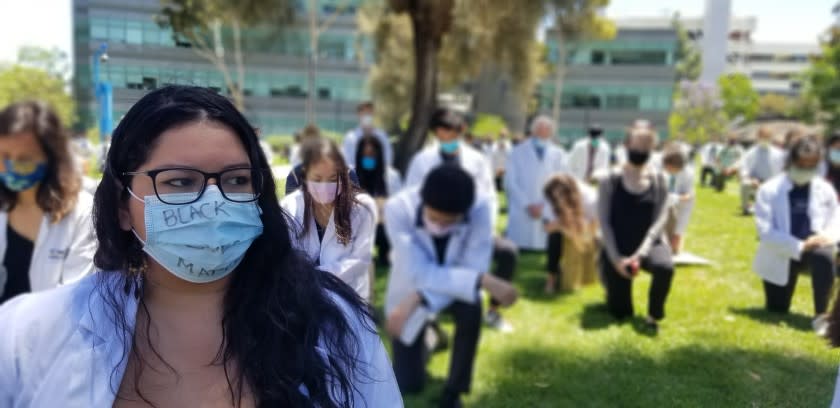Letters to the Editor: Can your doctor recognize a problematic lesion on dark skin?

To the editor: Physician Trisha Pasricha writes that if critical race theory were taught in medical school, "lesson plans would purposefully illustrate examples of rashes on dark skin that can manifest quite differently than they do on light skin, the current learning standard."
In 1969, my mother accepted a job as a nurse with the Los Angeles Unified School District and was assigned to a middle school with a majority Black student population. She went to the UCLA medical library to research exactly this question: What do particular, diagnostically important skin lesions look like on dark skin?
She found nothing. She went to several other medical libraries, eventually finding some photos in the files, not the textbooks, at the L.A. County-USC Medical Center library.
Bristling at this injustice by omission in the medical literature, my mother published a peer-reviewed article on identifying common lesions on dark skin in the Journal of School Health
It is tragic that 50 years later, conscientious healthcare providers are still fighting this same battle.
Rachel Green, Los Angeles
..
To the editor: Physicians believe they do not lower the quality care for anybody. Their intention prevents them from seeing gaps in care. Enough gaps become a pattern that we accept as normal.
So, we don't change, and our resulting failures become invisible. Our intention to give good care becomes knowledge that we give good care.
I once saw a physician describe disqualifications for home care with photos showing a comically crowded home. Everyone laughed, even though multigenerational homes are normal in some cultures. In family conferences, I advise the residents that a family member likely had been denied medical care because of race.
I served on a fire rescue ambulance in South Los Angeles 10 years after the Watts riots. People of color have justified reasons not to trust authority. They have cultural experiences and words out of reach of white physicians.
Daved van Stralen, M.D., Redlands
This story originally appeared in Los Angeles Times.

